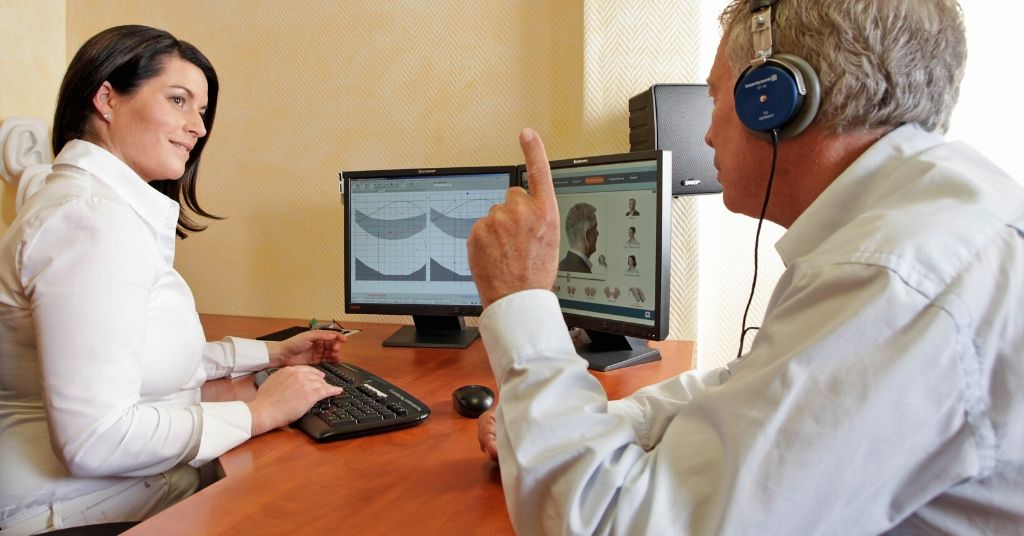
5 things D/deaf people want you to know about hearing aids
May 24, 2023myPhonak portal gives hearing aid users more control
May 31, 2023Survey: Hearing devices benefit overall health and wellbeing

The British Irish Hearing Instrument Manufacturers Association (BIHIMA) is highlighting the benefits of using hearing technology on creating a more inclusive society. In addition, research shows hearing technology can also minimize barriers patients face in accessing hearing care.
A Focus on Inclusion
As aforementioned, inclusion was a big part of this research. This year’s Deaf Awareness Week in the UK was centered around the theme of inclusion. People living with deafness and hearing loss face significant barriers to communication, which can lead to social isolation, limited employment opportunities, and less access to essential services.
Research shows that using hearing instruments can improve inclusion. “These crucial findings all contribute to the way that an individual navigates daily life and, those vital feelings of inclusion,” says chairman of BIHIMA, Paul Surridge. “Our survey also found that those who regularly wore hearing devices felt that they could communicate more effectively in most situations, had an improved social life, more confidence, and participated more in group activities.”
“Research shows that using hearing instruments can improve inclusion.”
It was also noted that wait times play a contributing role to accessibility. Many hearing care providers are often booked out weeks or months.
“We also find that those within poorer socioeconomic demographics, minority groups, etc., are facing their own barriers to obtaining support for their hearing loss,” Surridge says.
BIHIMA is advocating for hearing care to be made a greater priority by the UK government.
“We want hearing care to be as significant a priority as eye care,” he says. “Hearing tests should be included for free as part of the NHS Health Check offered to people over 40. We also want to see more research undertaken around the impact not only of hearing loss, but hearing instrument usage.”
Read more: “My hearing aids are by far the best thing that has ever happened to me”
How hearing devices can affect individuals
According to the data from EuroTrak, those using hearing devices were less likely to get depressed and get more sleep than those without hearing devices. Additionally, their survey shows that 66% of hearing device owners felt they should have obtained them sooner. Their reason for this was because of the positive impact the devices have on their lives. Findings also evidenced that 90% of hearing instrument users say that hearing aids are useful for their job.
Read more: Understanding Phonak and Advanced Bionics hearing technology
However, some people might not want to use devices to help with hearing. One of the biggest reasons for people not wearing hearing instruments was discomfort (67%). Another reason was because they didn’t feel their hearing loss was serious enough to warrant the use. In addition, 55% don’t use them because they “don’t restore their hearing back to normal.” This suggests that improvements are needed to the fitting and aftercare processes for hearing instruments.



